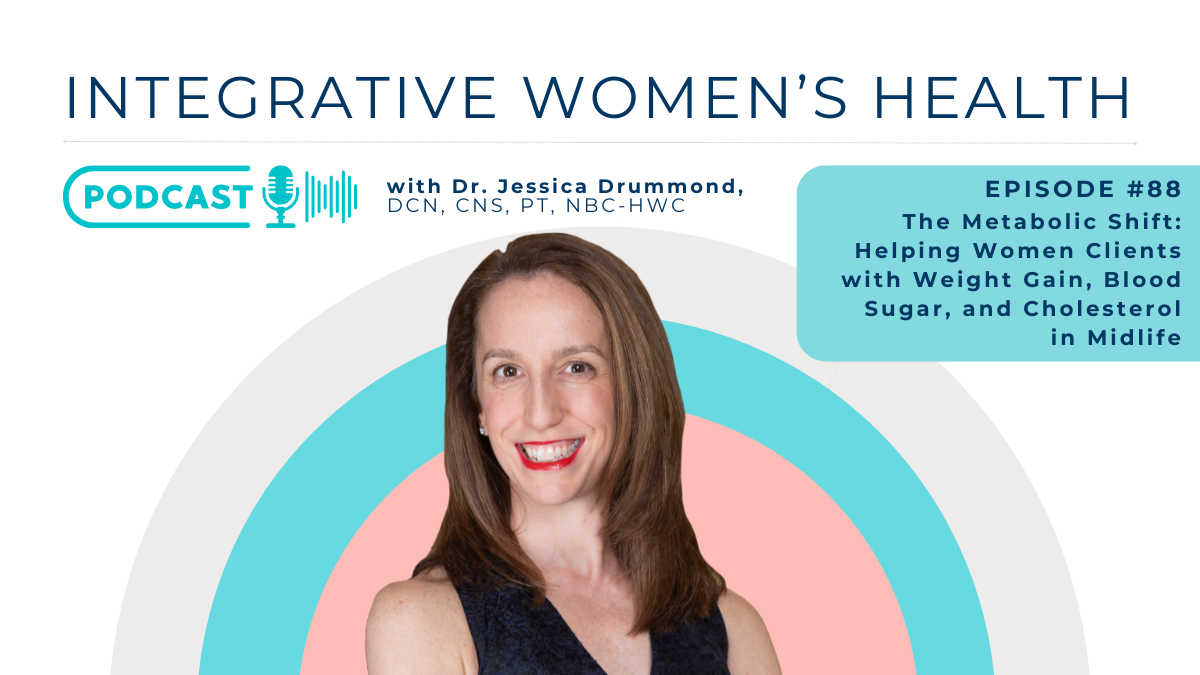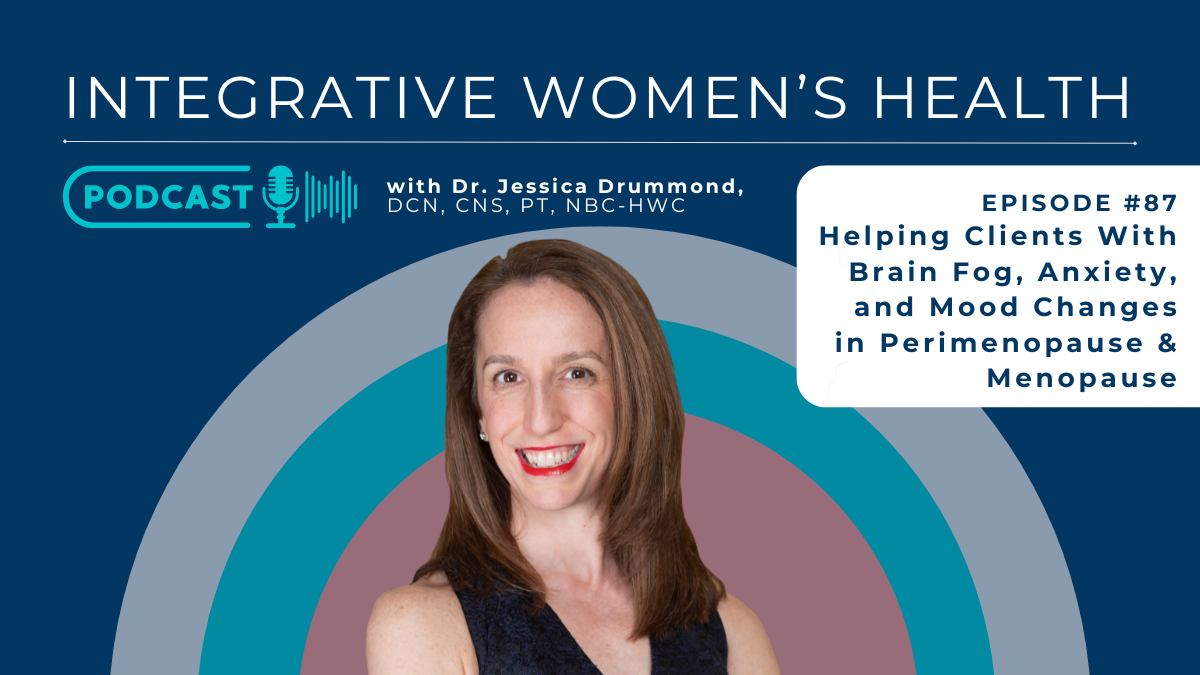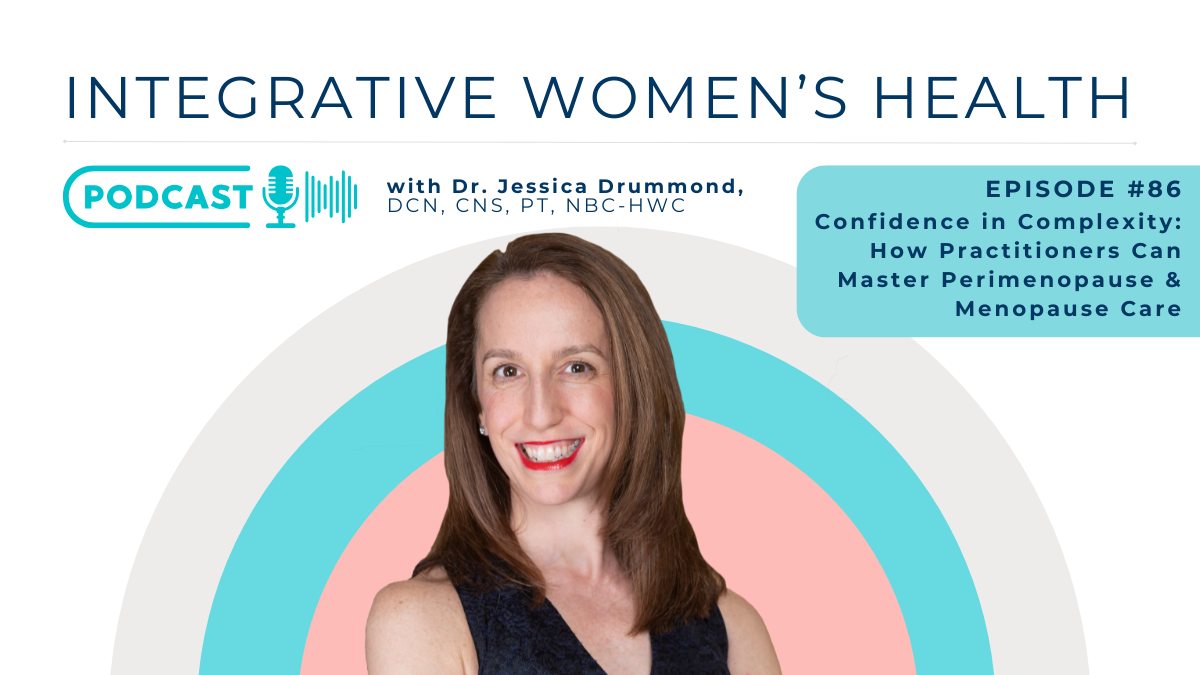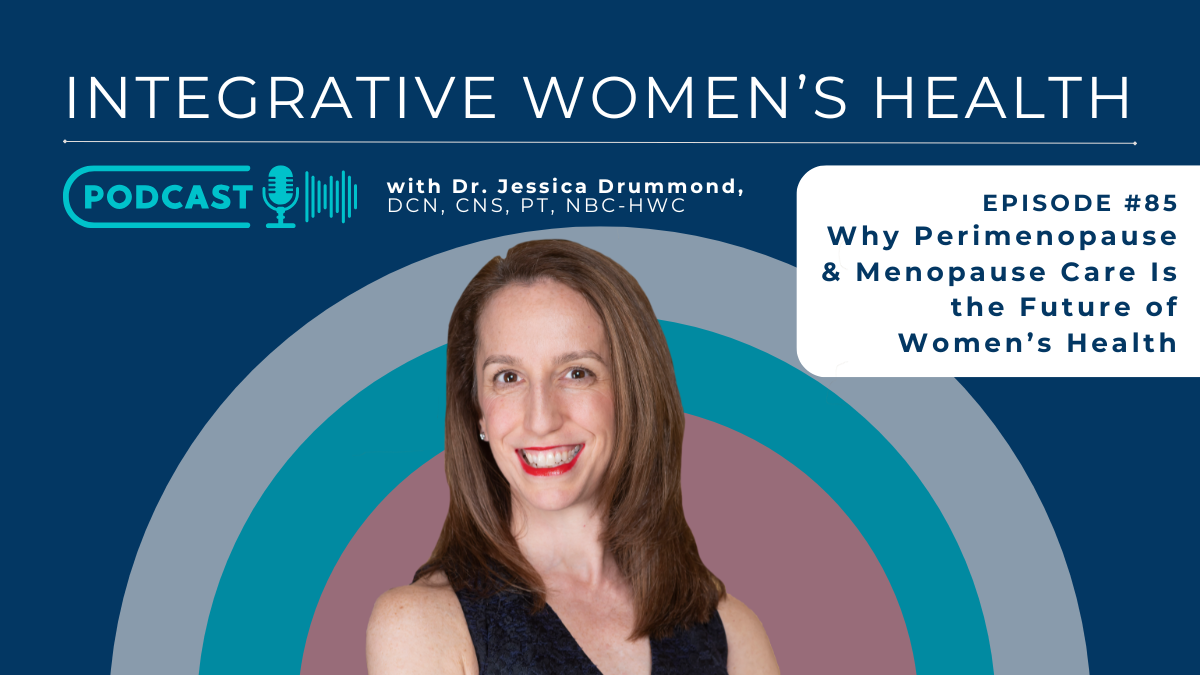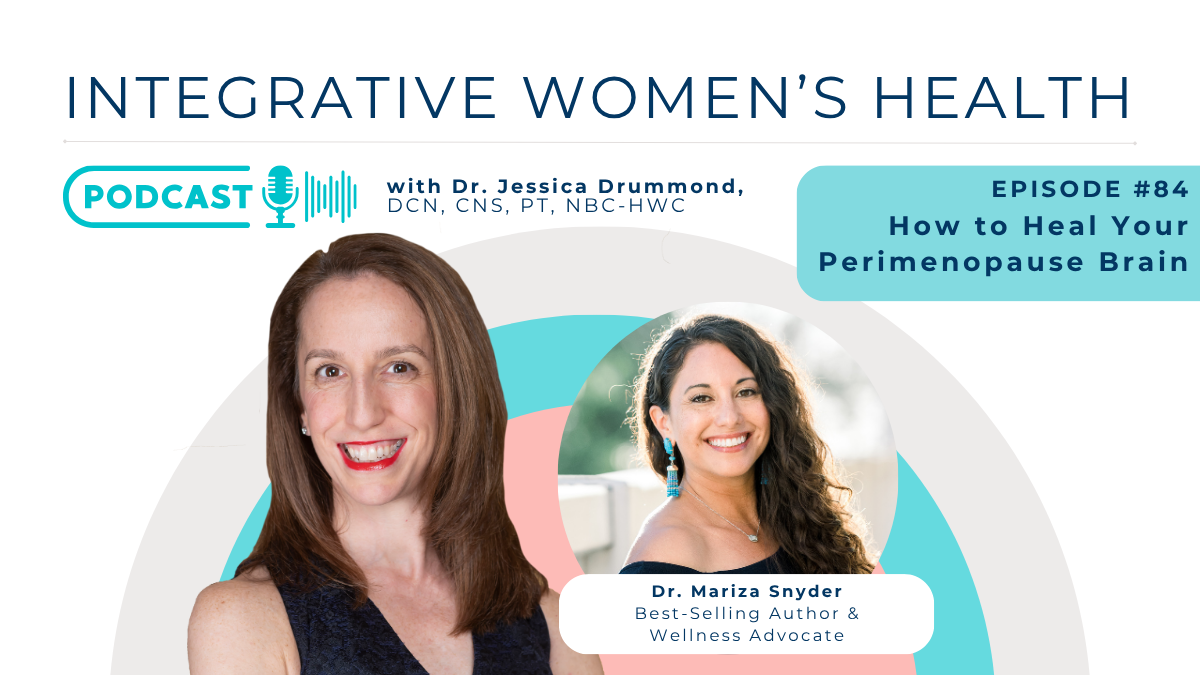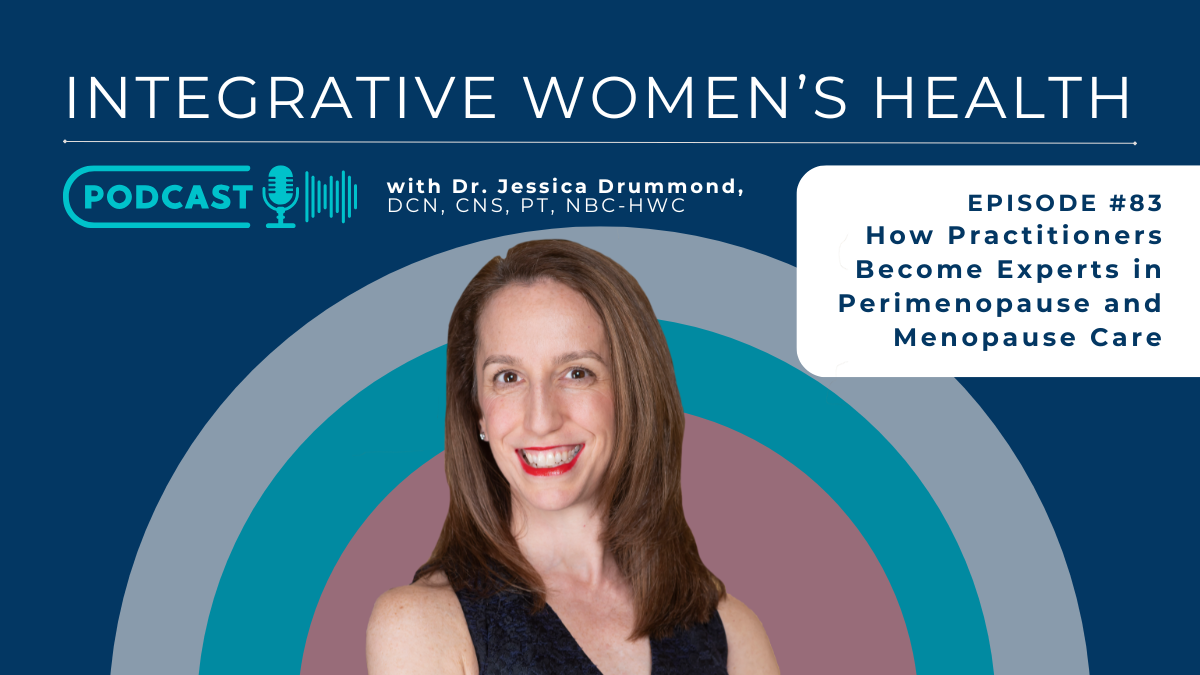As a women’s health or wellness professional, you have likely worked with many clients who struggle with sleep issues! Our clients with sleep challenges in perimenopause and menopause are frustrated, exhausted, and at their wits end. Is there any evidence that your clients should use Hormone Replacement Therapy (HRT) to sleep better in menopause?
Fortunately a growing body of evidence is finding that HRT can be a pivotal component in managing sleep disturbances during menopause.
Let’s delve into how HRT supports sleep quality and quantity.
But, first, don’t forget to address the fundamentals.
What’s her nightly wind down routine?
Are her blood sugar and cortisol within the optimal ranges through the day and night?
How is her nutrition, stress management, and exercise?
Does she have consistent sleep/ wake timing?
Has she done a 30-day trial of eliminating alcohol and caffeine to determine the impact on her sleep?
How is her HRV?
Is she living an antiinflammatory lifestyle?
Are her detox pathways open? Is she pooping and sweating?

Setting the foundations is the key to success and often missed by practitioners. HRT will be most helpful (with the least side effects) in the context of having solid foundations of health.
Plus, review any medications or supplements that she might be taking for side effects related to sleep.
How Hormonal Changes in Menopause Impact Sleep
Menopause often leads to sleep disruptions related to fluctuations and declines in estrogen and progesterone levels. These hormonal changes can result in hot flashes, night sweats, and mood swings, all of which can significantly impair sleep quality.
A systematic review and meta-analysis exploring various regimens of menopausal hormone therapy for sleep quality improvement found that compared to placebo, hormone therapy (HT) improved self-reported sleep outcomes, but not sleep parameters measured by polysomnography.
Specifically, 17β-estradiol and conjugated equine estrogens showed positive effects on sleep quality in some studies. In another study, the combination of estrogen and progesterone had a positive effect on sleep disturbance, but estrogen monotherapy did not.
When it comes to estrogen, transdermal administration is most beneficial for sleep issues, and does not increase blood clot risk. While both oral micronized progesterone and medroxyprogesterone acetate (also found in Depo Provera) have been found beneficial to alleviate sleep disturbance, oral micronized progesterone is the most effective and the safest form because it does not increase clotting factors. [1] [2] [3]
In fact, one study reviewed the literature on using only progesterone to improve vasomotor symptoms (VMS) and sleep challenges in menopausal women (without estrogen). In a single 3-month RCT, progesterone (300 mg at bedtime) was an effective treatment of VMS in 133 healthy menopausal women.
It caused an overall 55% VMS decrease, no withdrawal-related VMS rebound and a greater VMS decrease in 46 women with ≥50 moderate-intense VMS/week. Progesterone is equally or more effective than estradiol in improving cardiovascular endothelial function and caused no cardiovascular safety concerns in a 3-month RCT. While 300 mg was used in this study, especially when clients are sensitive, it’s best to start at much lower doses between 15 mg and 100 mg at bedtime.
An 8-year prospective cohort study in more than 80,000 menopausal women showed progesterone prevented breast cancer in estrogen-treated women. Multiple RCTs confirm that progesterone (300 mg daily at bedtime) does not cause depression and improves deep sleep. In conclusion, progesterone effectively treats VMS, improves sleep and may be the only therapy that symptomatic women, who are menopausal at a normal age and without osteoporosis, need. [4]
Menopause, Hormone Replacement Therapy, and Sleep-Disordered Breathing
Interestingly, the role of menopause and HRT in sleep-disordered breathing (SDB) has been examined, but current literature does not conclusively support that hormonal changes during menopause, per se, explain the increase in SDB.
Moreover, HRT in alleviating SDB is not recommended as a strategy to improve the SDB that can be common in midlife women.[5]
In my practice, I find that ENT assessment combined with breath work and myofunctional therapy to support optimal mouth, tongue, breathing, airway, and sleep postures are essential foundations to optimal sleep breathing for women in midlife. [6]
Additionally, antioxidants, minerals, and vitamin D can support better breathing and airway patency during sleep. [7] [8]

When HRT Exacerbates Sleep Issues in Menopause
Finally, there are a few circumstances when taking HRT can exacerbate symptoms of poor sleep, especially those due to vasomotor symptoms: Mast Cell Activation Syndrome (MCAS) or other histamine issues and Vagus Nerve Dysregulation.
MCAS is a common immune dysfunction that is often triggered by a post viral syndrome. It can also be related to genetic vulnerability and allergic reactions. [9] [10]
This can present with inflammatory and/or allergic symptoms related to many systems throughout the body from bloating to vascular pain and inflammation, heat and redness with any exertion, food allergies, asthma or other breathing issues, joint and skin pain or redness, dysautonomia, organ inflammation, and other sensitivities to environmental factors.
Estrogen can exacerbate mast cell activation and this inflammatory response. Postmenopausal women on hormone replacement therapy are at risk of new onset asthma. [11]
New research is showing that estrogen can influence mast cell degranulation triggering inflammation in endometriosis. [12]
Clinically, we are seeing more clients with endometriosis struggle with post viral MCAS in the current environment. Notably, progesterone can inhibit mast cell secretion of histamine and other factors.[13]
Mast Cell Activation Syndrome and Sleep Issues
In an animal clinical trial of progesterone’s impact on mast cells, mast cell total numbers were not impacted, but histamine levels decreased with the administration of progesterone in the ovulation-induced mice. [14]
Thus, healing MCAS and optimizing immune function first can make HRT more tolerable and beneficial, and trialing progesterone before adding estrogen may be valuable in clients with MCAS or other histamine related immune dysfunction.
Relatedly, MCAS often presents with symptoms of autonomic nervous system dysfunction (also known as dysautonomia). Dysautonomia combined with a symptom cluster that also includes central and peripheral nervous system symptoms – including such symptoms as:
- constipation
- shortness of breath
- dry mouth or eyes
- gastroparesis
- light sensitivity
- bradycardia and/or tachycardia
- low blood pressure with standing
- increased body temperature
- urinary retention or frequency
- mood swings
- brain fog
- difficulty concentrating
- easily startled, confusion
- memory issues
- irritability
- extreme fatigue
- tremors
- ataxia
- shaking
- visual disturbance
- and sensitivity to sound – can also present as Myalgic Encephalomyelitis/Chronic Fatigue Syndrome (ME/CFS).
- If your client has any form of dysautonomia or ME/CFS, therapies to address vagus nerve function will be key to the effectiveness of the HRT for sleep quality.
Vasomotor symptoms have been related to changes in heart rate variability (HRV) and the vagus nerve mediated gut-brain axis. Even if women have the same degrees of estrogen decline. Women with poorer vagus nerve tone will be more symptomatic. [15][16]
Though the data are mixed, some studies show that suboptimal vagus nerve function as measured by HRV is related to vasomotor symptoms of perimenopause and menopause that can impact sleep.[17] Even adjusting for estradiol levels, hot flashes and night sweats are worse in women with inflammation, which is also mediated by vagus nerve tone. [18]
An Integrative Approach: Hormone Replacement Therapy to Sleep Better in Menopause
Starting with the lowest effective doses of oral micronized progesterone and transdermal estrogen (for those with MCAS also consider additives), in the context of an anti-inflammatory lifestyle and vagus nerve toning strategies, such as supporting acetylcholine levels, breath work, therapeutic yoga, and vagus nerve stimulation is a more complete strategy for using HRT to support optimal sleep in perimenopausal and menopausal women.
In summary, while HRT can be beneficial for improving sleep quality in menopausal women, the type of hormones used, the method of administration, and individual health profiles play crucial roles in determining its effectiveness.
As always it’s important for our clients to put the research into context of their own unique circumstances.
It is essential for women considering HRT to discuss their options with their healthcare providers, consider their specific symptoms, health history, health goals, and personal preferences.
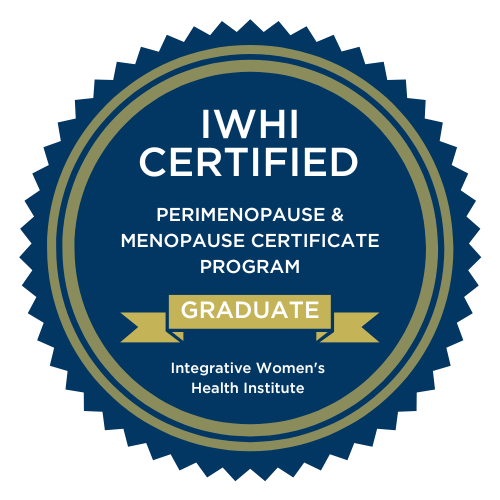
BECOME A MENOPAUSE EXPERT
IN 6 MONTHS OR LESS!
Fast-track to becoming a specialized perimenopause and menopause expert in under six months.
Receive an authenticated certificate to display on your website and in your office upon program completion.
Stand out in the marketplace as a practitioner who specializes in the management and treatment of perimenopause, menopause and associated symptoms and conditions.

Dr. Jessica Drummond
Founder & CEO
The Integrative Women’s Health Institute
At the Integrative Women’s Health Institute, we’ve dedicated 17 years to crafting evidence-driven, cutting-edge programs that empower practitioners like you to address the complexities of women’s health.
Dr. Jessica Drummond’s unique approach focuses on functional nutrition, lifestyle medicine, movement therapies, nervous system dysregulation, trauma, and mindset – essential elements often overlooked in traditional health education.
In addition, your training will be fully evidence based, personalized, and nuanced (this is not a cookie cutter approach) in functional nutrition, exercise, recovery, cellular health, and all other lifestyle medicine tools.
You’ll learn to support your clients with cutting edge tools safely and effectively.

